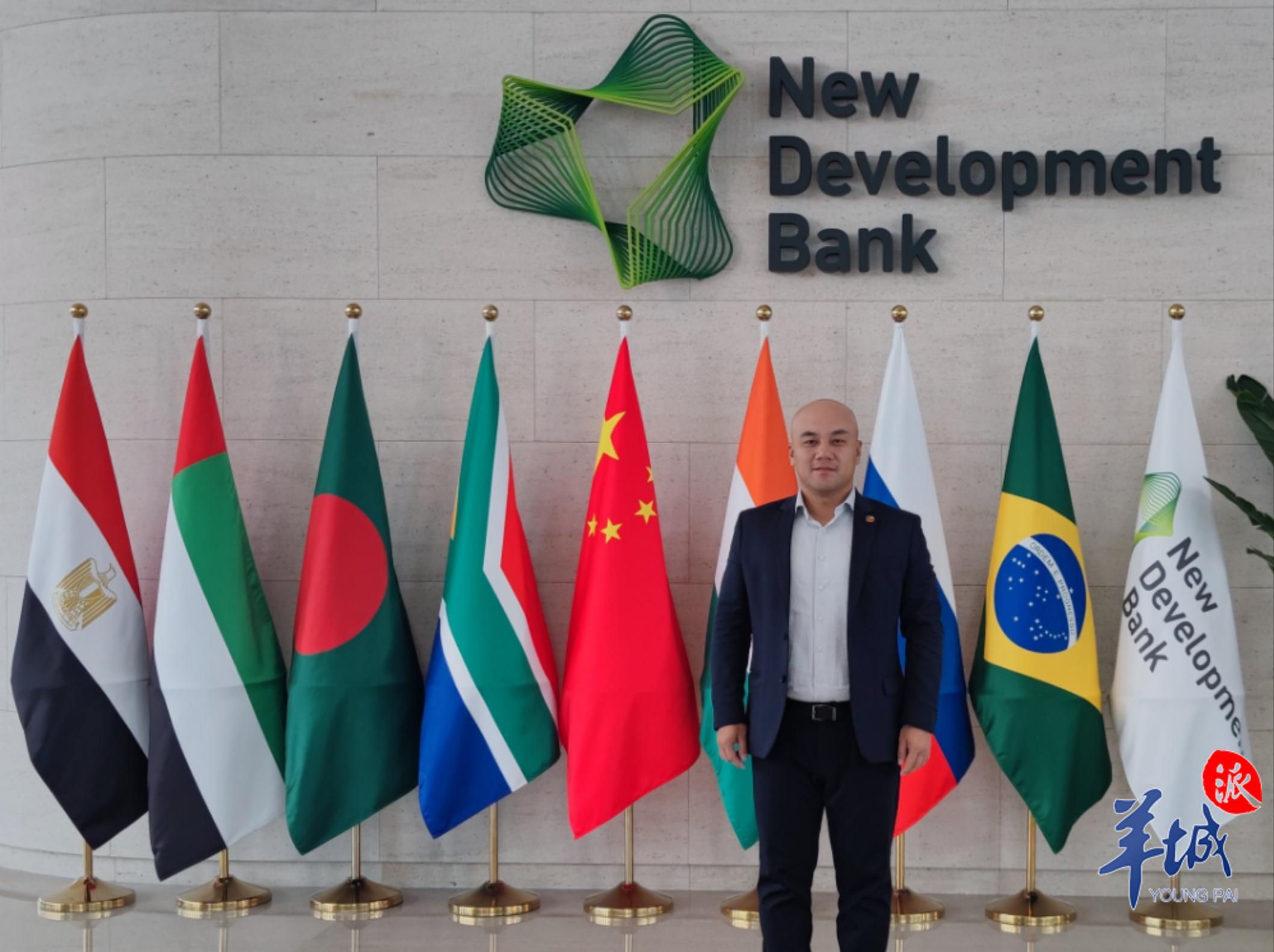Brazilian President Luiz Inácio Lula da Silva is currently on a state visit to China from April 12th to 15th. During an interview with Xinhua News Agency, President Lula stated that "Brazil-China relations are of great importance to both countries and the world."

What positive impacts will Lula's visit have on the relationship between the two countries? Yangcheng Evening News interviewed Jiang Youyang, the Secretary-General of the Associação Chinesa do Brasil who is accompanying President Lula on his visit to China.
Brazil and China are the largest developing countries in the Western and Eastern hemispheres, respectively. They are also members of the BRICS countries, and both have promising prospects for development. During President Lula's visit to China, economic and trade exchanges are a significant topic of discussion. "China is Brazil's largest trading partner. Since President Lula's government took office, Brazil has been promoting its reindustrialization. In this process, Brazil needs a lot of investment from Chinese companies. Therefore, this is a significant opportunity for Chinese companies," said Jiang Youyang. "In January of this year, the Guangdong Investment and Business Environment Promotion Conference in Brazil was held in São Paulo, Brazil. In addition, Guangdong Province and São Paulo State shares the tie of friendship, which means that cooperation in various fields between the two sides is deepening and expanding. I am very optimistic about trade and development between Guangdong and Brazil."
Earlier this year, Brazil announced an agreement with China to settle trade in local currencies. Regarding this, Jiang Youyang pointed out that a significant advantage of local currency transactions is the reduction in transaction costs. This means that there is no need for a country to purchase US dollars first and then exchange them for the other country's currency during the transaction process. This is especially beneficial for bulk trades because the cost reduction will be substantial. Besides, "with local currency settlement, both sides can increase mutual trust and ensure the security of investment."
In addition to economic and trade exchanges, cultural exchanges between China and Brazil are also increasing. Jiang Youyang operates a restaurant in Brazil and many of his customers are Chinese-speaking Brazilians. Although he also speaks Portuguese, communication with Brazilians in Chinese makes him feel more at home. "Brazil's investment in the education sector is relatively weak, which offers an opportunity for China. Currently, there are some Chinese schools and several Confucius Institutes in Brazil, and many Brazilian students are learning Chinese there. Increasing educational exchanges between China and Brazil is essential." Jiang Youyang believed that through cultural exchanges, mutual trust between the two peoples can be further increased, and people-to-people exchanges will also further promote mutual trust between the two countries.
On April 15th, the Canton Fair will resume its offline exhibitions. Although Jiang Youyang has not yet attended it, many of his Brazilian friends will come to attend. In addition to the Canton Fair, the GBA is attracting the attention of countries around the world, including Brazil. "Brazil is a Portuguese-speaking country, and the Macao Special Administrative Region in the GBA is home to many Portuguese-speaking Chinese. They are severely needed in the trade between China and Brazil. I believe that the GBA will play an increasingly important role in China-Brazilian exchanges," said Jiang Youyang.
"Overall, Brazil is one of the most important countries in South America and a member of BRICS. In the process of Brazil's industrialization, China will become an important provider of solutions," said Jiang Youyang. "During his visit to China, President Lula came with a very sincere attitude. I hope that Brazil can unite with other BRICS countries to face the internationally challenges together and work toward a multipolar world."
巴西华人协会秘书长蒋幼扬:我对广东和巴西之间的贸易非常有信心
巴西联邦共和国总统卢拉4月12日至15日对中国进行国事访问。卢拉在接受新华社采访时表示:“巴中关系对于两国和世界具有重要意义。”
卢拉此次访华将会对两国关系带来哪些积极影响?羊城晚报记者采访了正在陪同巴西总统卢拉访华的巴西华人协会秘书长蒋幼扬。
巴西和中国分别是西半球和东半球最大的发展中国家,同样都属于金砖国家,两国发展的前景广阔。此次卢拉总统访华,经贸交流是重要议题。“中国是巴西最大的贸易伙伴。卢拉政府上台后,推进了巴西的再工业化,在此过程中,巴西需要很多的中国企业对其进行投资。因此,这对于中国企业来说,是一个非常大的机遇。”蒋幼扬说,“今年1月‘中国广东省投资营商环境(巴西)’推介会在巴西圣保罗举行。同时,广东省与圣保罗州是友好省州,这也意味着双方各领域合作正在日益深化和拓展,我对广东和巴西之间的贸易和发展非常看好。”
早前,巴西宣布中巴两国协定以本币进行贸易结算。对此,蒋幼扬指出,本币交易的很大一个好处就是可以降低交易成本,即在交易过程中不需要某国先购买美元,再换成另一国的货币,特别是针对大宗贸易来说,因为交易金额巨大,本币交易降低的成本是非常可观的。同时,“通过本币结算,双方也能够增加互信,也能够保障投资的安全性。”
除了经贸的交流,中巴文化之间的交流也日渐频繁。蒋幼扬在巴西拥有一家餐馆,他经常能够接待一些会说中文的巴西人。虽然他也会葡萄牙语,但是巴西人用中文与他交流还是让他倍感亲切。“巴西在教育领域的投资是比较薄弱的,这对于中国来说也是机遇。目前在巴西已有一些中文学校,还有几所孔子学院,有不少巴西的学生在此学习中文。增加中巴之间的教育交流是非常必要的。”蒋幼扬表示,通过人文交流可以进一步增加两国人民的互信,民间的交流也会进一步推动国家之间的互信。
4月15日,广交会将全面恢复线下举办。虽然蒋幼扬还没有参加过广交会,但他的很多巴西朋友都会前来参加。与此同时,粤港澳大湾区也在吸引着包括巴西在内的世界各国的目光。“巴西是一个葡萄牙语国家,像粤港澳大湾区中的澳门也有着天然的葡语优势,广东省也有相当丰富的人才储备。而在中巴双方贸易过程中,需要大量此类型的人才,我相信粤港澳大湾区会在中巴交流中扮演越来越重要的角色。”蒋幼扬说。
“总体而言,巴西是南美洲最重要的国家之一,也是金砖国家成员。在巴西再工业化的进程中,中国将成为重要的解决方案提供者。”蒋幼扬表示,“此次卢拉总统是带着非常诚恳的心情来到中国,我也希望巴西能和其他的金砖国家一道,团结在一起,共同面对世界的挑战,推动世界多极化发展。”
文字、视频 | 羊城晚报全媒体记者 孙唯
翻译 | 刘佳慧









